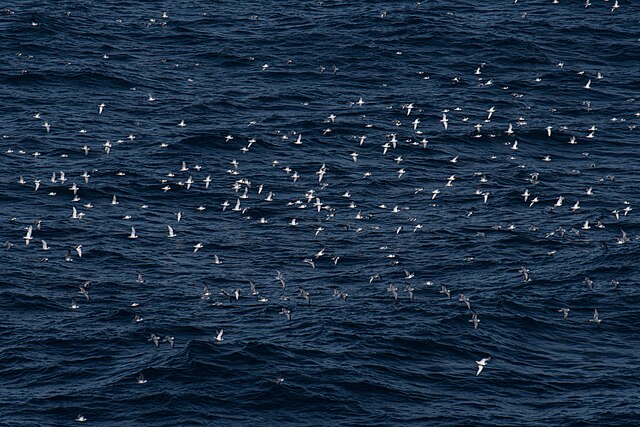
Birds are an incredibly abundant and diverse group of animals found in various habitats across the globe. Their widespread presence and the enjoyment they bring to many people make them unique in terms of the wealth of data they offer.
Unfortunately, the data collected over the years have revealed alarming trends. Studies suggest that North America has lost a third of its bird population in the last 50 years, with most bird species experiencing decline.
Birds serve as indicators of environmental health and the well-being of other species, making these findings a call to action says Peter Marra, a conservation biologist and dean of Georgetown University’s Earth Commons Institute. “If our birds are disappearing, then we’re cutting the legs off beneath us,” he says. “We’re destroying the environment that we depend on.”
While the decline of bird populations is concerning, there are success stories that offer hope. Some bird species are increasing in number, and dozens have been saved from extinction through human intervention. Understanding both the declines and successes can inform conservation efforts not only for birds but also for other species.
Bird monitoring and data collection occur on a global scale. People from all walks of life, whether bird experts or beginners, contribute to initiatives like the Great Backyard Bird Count, the North American Breeding Bird Survey, and Audubon’s Christmas Bird Count. Citizen scientists play a crucial role in observing and recording bird sightings, helping to track population trends over time.
The monitoring efforts have highlighted declines in bird populations since the late 1980s. For example, a 2019 study showed that bird abundance in North America has decreased by nearly 3 billion since 1970, a 29% loss. Grassland birds have been particularly affected due to habitat loss and pesticide use. Europe has also experienced declines, with a 2021 study estimating a bird population decrease of up to 19% from 1980 to 2017. Reports from South Africa, Costa Rica, the Amazon, and India also point to declining bird numbers and shrinking ranges.
The 2022 Annual Review of Environment and Resources was an attempt to, for the first time, synthesise research from across the world to create a comprehensive picture of global changes in bird abundance. Lees, a conservation biologist at Manchester Metropolitan University in the United Kingdom, says, “Looking across all taxa, there are big signals for declines everywhere. There are some species which are increasing, but more species are declining than are increasing. In our attempts to halt the loss of global bird biodiversity, we’re currently not succeeding.”
Nevertheless, there are positive signs. Wetland bird species in North America have grown by 13% since 1970, largely due to conservation efforts and wetland restoration. In India, 14% of assessed bird species have seen increases in abundance. These successes demonstrate that population declines can be reversed through targeted conservation actions.
Moreover, human intervention has played a crucial role in saving bird species from extinction. Between 1993 and 2020, as many as 48 bird and mammal species were rescued from extinction, thanks to conservation efforts. Without human intervention, the number of extinctions would have been significantly higher.
The findings from comprehensive global assessments of bird abundance offer both cause for concern and reasons to be hopeful. The data collected by birdwatchers and citizen scientists have shed light on the challenges facing bird populations, but they have also shown that conservation efforts can make a difference. The success stories should serve as motivation to protect and conserve bird species and their habitats to ensure a sustainable future for these remarkable creatures.
As more data emerge, researchers urge optimism. “It’s really important not to have a doomsayer sort of position,” Lees says. Conservation has saved very rare species from extinction, he notes, and reversed declines in once-common species.
“Conservation,” he says, “does work.”
——————————————————————————
At Natural World Fund, we are passionate about stopping the decline in our wildlife.
The declines in our wildlife is shocking and frightening. Without much more support, many of the animals we know and love will continue in their declines towards extinction.
When you help to restore a patch of degraded land through rewilding to forests, meadows, or wetlands, you have a massive impact on the biodiversity at a local level. You give animals a home and food that they otherwise would not have had, and it has a positive snowball effect for the food chain.
We are convinced that this is much better for the UK than growing lots of fast-growing coniferous trees, solely to remove carbon, that don’t actually help our animals to thrive.
This is why we stand for restoring nature in the UK through responsible rewilding. For us, it is the right thing to do. Let’s do what’s right for nature!
Donate today at https://naturalworldfund.com/ and join in the solution!

